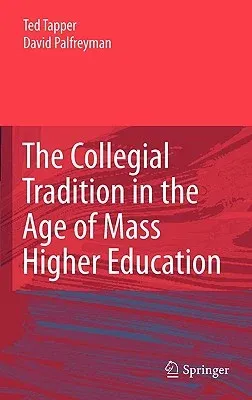Much of our writing re?ects a long-term commitment to the analysis of
the col- gial tradition in higher education. This commitment is re?ected
most strongly in Oxford and the Decline of the Collegiate Tradition
(2000), which we are pleased to say will re-appear as a considerably
revised second edition (Oxford, The Collegiate University: Con?ict,
Consensus and Continuity) to be published by Springer in the near
future. To some extent this volume, The Collegial Tradition in the Age
of Mass Higher Education, is a reaction to the charge that our work has
been too narrowly focussed upon the Universities of Oxford and Cambridge
(Oxbridge). Not surpr- ingly, you would expect us to reject that
critique, while responding constructively to it. The focus may be
narrow, and although the relative presence and, more arguably, the
in?uence of Oxford and Cambridge may have declined in English higher e-
cation, they remain important national universities. Moreover, as the
plethora of so-called world-class higher education league tables would
have us believe, they also have a powerful international status. This,
however, is essentially a defensive response dependent upon the alleged
reputations of the two universities. This book is intent on making a
more substantial argument. To examine the c- legial tradition in higher
education means much more than presenting a nostalgic look at the past.

